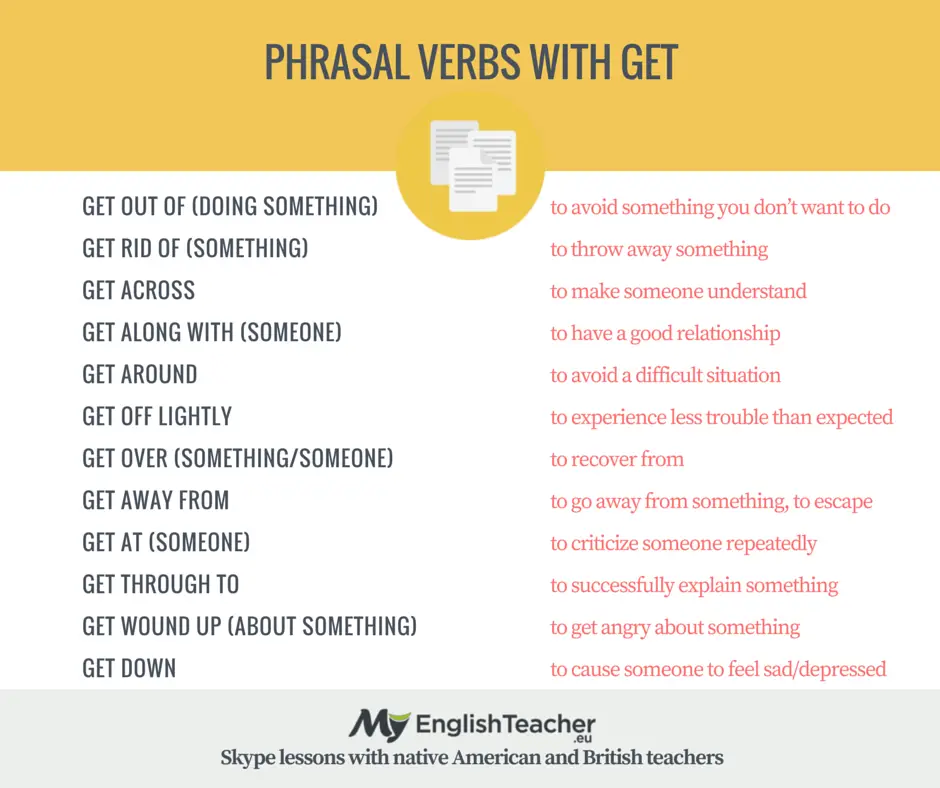
“It appears to me that you have thoroughly mucked up the case again.” a) appears toĥ. When we use phrasal verbs, we use them like normal verbs in a sentence, regardless if its a regular.
#List of phrasal verbs and their meaning in spanish full#
Identify the phrasal verb in the following sentence. This is the phrasal verbs section of Busy Teacher, a website full of resources for ESL teachers.There are currently 182 worksheets that deal with this topic and can help your students practice using related material. That is, one cannot know what a given phrasal verb construction means based upon what the verb alone and/or the preposition and/or particle alone mean, as emphasized above. What do prepositions do that particles cannot do in phrasal verbs? a) Come after the object of the verbĤ. The aspect of phrasal verb constructions that makes them difficult to learn for non-native speakers of English is that their meaning is non-compositional. What is the primary difference between prepositional verbs and phrasal verbs? a) Prepositional verbs have a literal meaning phrasal verbs have an idiomatic meaning.ī) Prepositional verbs have an idiomatic meaning phrasal verbs have a literal meaning.Ĭ) Prepositional verbs are always transitive phrasal verbs are always intransitive.ĭ) Prepositional verbs are always separable phrasal verbs are always inseparable.ģ. 100 Most Common Phrasal Verbs List with Meanings and Examples.

locución nominal masculina: Unidad léxica estable formada de dos o más palabras que funciona como sustantivo masculino ('ojo de buey', 'agua mala'). Phrasal verbs are constructed by adding a preposition or. So the preposition changes the meaning of the main verb.

Let ‘s take for instance Find out it does not literally mean you need to go out and find something, it is just to discover. (verb followed by a particle) verbo compuesto loc nom m. Phrasal verbs are verbs that change their meaning when a preposition or an adverb is added to them. Which of the following is not a component of a phrasal verb? a) verbĢ. Note: All the group verbs have changed their exact meaning when they combine with prepositions and adverbs. noun: Refers to person, place, thing, quality, etc.


 0 kommentar(er)
0 kommentar(er)
